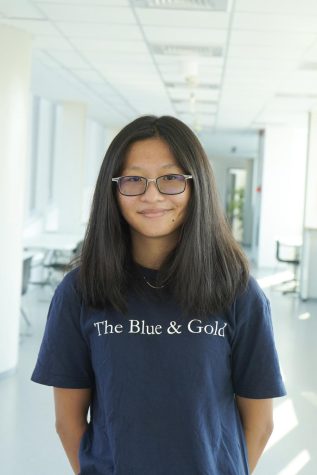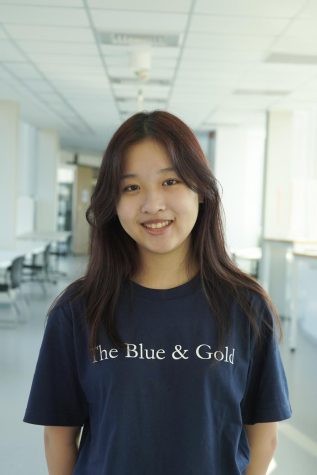Weston Cooper (’08) and the importance of learning Black history
Alumnus-turned-teacher Weston Cooper (‘08, he/him) recently presented a slideshow to TAS faculty about showing empathy towards the Black Lives Matter Movement by building upon the similarities between American history and Taiwanese history.
Mr. Cooper attended a Taiwanese local school until ninth grade. It was there that he realized how unjust it was to be denied an identity based on your outer appearance. To combat this, he immersed himself in studying Taiwanese and Chinese history. “I studied the language to try to say ‘Look, if I know this history, and I know the language better than you, you can’t tell me that I’m a foreigner,’” Mr. Cooper said.
After transferring to TAS in 2004, Mr. Cooper felt an immediate shift in the attitudes of his peers. “My first day at TAS was the very first day where nobody stared at me because I was different,” Mr. Cooper said. “I felt a sense of duty and responsibility to be back [at TAS] in many ways, and I really appreciate the opportunity to be back here to work with TAS students on identity formation.”
Mr. Cooper attended the University of Washington in Seattle, majoring in international studies and cultural anthropology. In both majors, he focused on studying identity and social inequality in America. While studying these fields at college, he felt frustrated with the world because “I felt like we were learning so much about problems in the world, things that are wrong, but we’re not offering any explanations or solutions.”
Back in Seattle, after the death of Trayvon Martin in 2013, Mr. Cooper began volunteering with the Black Lives Matter movement; the movement aims to draw attention to Black Americans whose lives are often marginalized by the US justice system. The death of Eric Garner in 2014 made Mr. Cooper realize the many parallels in Taiwanese and American history. He felt that it was important for Taiwanese Americans and people in Taiwan to recognize their shared connection. After the death of George Floyd in 2020, Mr. Cooper wanted to get more involved with organizations in Taiwan. He volunteered to help out with a forum some activists in Taiwan started called “Taipei is Listening” over the summer. The main goal of this forum was to allow Black people in Taiwan to share their experiences with racism and workshop ideas on how to loosen the hold of white supremacy that also affects Taiwan.
It was with “Taipei is Listening” that Mr. Cooper was invited to give a presentation about the correlation between Taiwanese and Black history. Dr. Grace Cheng Dodge, Interim Head of School, and Mr. Ryan Haynes, upper school counselor, attended the workshop held by Mr. Cooper and Anthony Kelley, and asked them to bring their presentation to school to show the faculty. “It’s incredibly important for us to talk to faculty about it because the faculty are the people who are going to help [the students] develop their identity,” Mr. Cooper said.
To illustrate the importance of teachers in helping students form their worldview, Mr. Cooper also mentioned the work teachers could do to unpack the centuries of Eurocentrism and white supremacy embedded in our systems. “Why is it that it’s not until we get into [the unit on] Greece that we start talking about individual inventors of things,” Mr. Cooper said. In his classroom, he works to combat this narrative by encouraging students to work on critical thinking and challenge conventional beliefs.
In regards to his future plans, Mr. Cooper hopes to expand his reach and influence in the TAS community. “I would like for the faculty and students to have more workshops instead of just speeches” so that “we can learn about each other and about our community. I am just really excited for our school to be a space where these things can happen and where we can center these kinds of conversations,” Mr. Cooper said. “Myself and many of my classmates have struggled with our identity and our place of belonging and meaning in the world since we are raised in multiple cultures and traditions. Our school is a unique place and we could all benefit from an increased focus on who we are and what we care about.”
More importantly, Mr. Cooper hopes to have students take action. “I feel like this generation of kids are more compassionate than ever… they are more aware of the world than ever,” Mr. Cooper said. The future will be determined by the actions of students, especially as new generations gain more and more resources to make impactful changes.

Victoria is the Co-Editor-in-Chief of The Blue & Gold. She has lived in Taiwan her entire life and has been attending TAS since lower school. She enjoys...

Katherine is the Print Managing Editor for The Blue and Gold. She grew up in New Jersey and moved to Taiwan in her eighth grade. In her free time, she...

![Sofia Valadao [Erin Wu/The Blue&Gold]
Erin Wu [Annabelle Hsu/The Blue&Gold]](https://blueandgoldonline.org/wp-content/uploads/2025/05/erin-sofia-pic-600x450.png)
![Dr. Simeondis, Mr. Anderson. [Annabelle Hsu/The Blue&Gold]](https://blueandgoldonline.org/wp-content/uploads/2025/05/teachers-600x338.jpg)
![[PHOTO COURTESY OF UNCULTURED, JUNIPER AND CO.]](https://blueandgoldonline.org/wp-content/uploads/2025/05/student-businesses-600x338.png)
![Photo of the girl's varsity badminton team [PHOTO COURTESY OF TAS ATHLETICS]](https://blueandgoldonline.org/wp-content/uploads/2025/05/BadmintonTeam-04839-600x338.jpg)
![The Institute for Speech and Debate, now based all across the east coast of the US. [PHOTO COURTESY OF MR. WILLIAMS]
Mr. Morris' various ceramic artwork. [PHOTO COURTESY OF MR. MORRIS]](https://blueandgoldonline.org/wp-content/uploads/2025/05/Untitled-design-1-600x459.png)